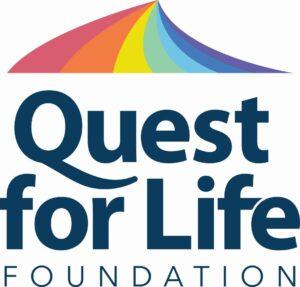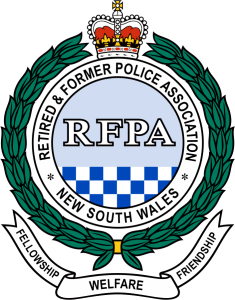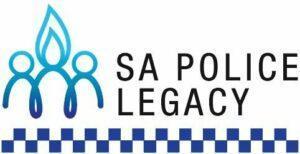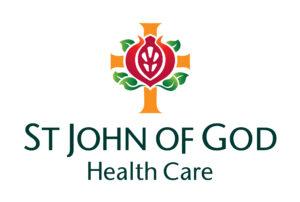Overview
The Biology of Trauma
An explanation of what happens in the body when we experience stress and how that relates to the ‘mind/body’ connection. We often think we can control the mind by being resilient however what really happens when the body does what it is build to do by our biological fight/flight/freeze stress response?
Burnout, the ingredients that cause stress
An outline of stressors that come with the job to assist in understanding why police are under the pump and the way triggers impact reaction versus response. This includes how the organization impacts police resilience.
The medical model verses person centred care
An explanation of the differences between psychiatry, psychotherapy and counselling to assist police and their families to understand the appropriate care to support their individual needs by making an informed choice.
Talking about Suicide
A sensitive conversation around suicidal ideation, which is an ultimate challenge for us all, how this can manifest and what to do if you, a family member, friend or colleague is struggling.
Reaching out for help
What are the options and how can we empower ourselves to live our best life.
Emotional awareness for managers
Information around how to identify and approach staff who are showing signs of burnout. A look at language and sensitivity when speaking with team members and how to use a person-centred approach rather than the penal system.
The role of Chaplains
An open discussion regarding the work of police chaplains and chaplaincy in general and how chaplains can be of support to serving and former police as well as how they assist and support families. This can include assisting when mental health issues arise as well as family crises, relationship breakdown and where there is illness or a death in the family.
Step-By-Step
Mental health professional support
Your doctor can refer you to mental health professionals including:
• psychiatrists
• psychologists
• counsellors
• social workers
• occupational therapists.
You can read about the different types of mental health professionals on the health direct website.
You can also use their find a health service tool to find one near you.
A mental health treatment plan lets you claim up to 20 sessions with a mental health professional each calendar year.
To start with, your doctor or psychiatrist will refer you for up to 6 sessions at a time. If you need more, they can refer you for further sessions. Health professionals set their own fees, so we may only cover some of the cost. Ask how much you’ll pay and what you’ll get back from us when you make your appointment. If they bulk bill, you won’t have to pay anything. If you have private health insurance, you may be able to get some money back. You can check with your insurer.
Help with costs
A mental health treatment plan lets you claim up to 20 sessions with a mental health professional each calendar year.
To start with, your doctor or psychiatrist will refer you for up to 6 sessions at a time. If you need more, they can refer you for further sessions. Health professionals set their own fees, so we may only cover some of the cost. Ask how much you’ll pay and what you’ll get back from us when you make your appointment. If they bulk bill, you won’t have to pay anything. If you have private health insurance, you may be able to get some money back. You can check with your insurer.
Rural and remote support
If you live in a remote area, it might be hard to see a mental health professional. You may be able to have a telehealth video consultation instead. You can claim for video consultation sessions with a mental health professional.
Ask your GP or mental health professional if they offer this service. You can also search the find a health service tool on the healthdirect website for mental health telehealth services.
Helpful Links
Content for pathways to help
 22 Sep 2021
22 Sep 2021
Quest for Life Foundation
Located at Bundanoon in the Southern Highlands of NSW, the Quest for Life Centre conducts monthly 5 day residential moving beyond trauma programs as an alternative for police living with trauma to hospital inpatient care. Programs provide educational person-centered education via a holistic approach based on the neuroscience of the brain and the latest evidenced based holistic health and healing modalities. An immersive 4 week Healing Trauma program is due to commence in late 2022. Programs such as the Healing your Life, living with cancer, loss after the suicide of a loved one, living with a brain injury or aging related illness are suitable for family members. Outreach programs are also conducted throughout NSW.
 03 Apr 2022
03 Apr 2022
Reachout Australia
An online mental health service for young people and parents providing peer to peer support, pathways to professional help, resources and forums to assist teenagers and under 25’s to stay safe. For parents services include digital information and resources on parenting teenagers, a confidential supportive online forum to discuss issues, coaching with a parental expert, building confidence and skills.
Relationships Australia
Relationships Australia provide a number of national services Australia wide to families, individuals and communities requiring support with relationships which may include, counselling, family support, domestic violence where they require assistance with safety and trauma, services for children and young people as well as services for older Australians looking for assistance with health, safety and wellbeing.
 03 Apr 2022
03 Apr 2022
Retired and Former Police Association of NSW
Staying connected to the police family by joining your local retired and former police association may be helpful in maintaining social connection and positive mental health outcomes. Each state jurisdiction has a retired and former police association where regular monthly meetings and social events assist with staying in touch with former colleagues.
 03 Apr 2022
03 Apr 2022
Retired Police Association of Tasmania
Staying connected to the police family by joining your local retired and former police association may be helpful in maintaining social connection and positive mental health outcomes. Each state jurisdiction has a retired and former police association where regular monthly meetings and social events assist with staying in touch with former colleagues.
 03 Apr 2022
03 Apr 2022
Retired Police Officers Association South Australia
Staying connected to the police family by joining your local retired and former police association may be helpful in maintaining social connection and positive mental health outcomes. Each state jurisdiction has a retired and former police association where regular monthly meetings and social events assist with staying in touch with former colleagues.
 03 Apr 2022
03 Apr 2022
Retired Police Officers Association Western Australia
Staying connected to the police family by joining your local retired and former police association may be helpful in maintaining social connection and positive mental health outcomes. Each state jurisdiction has a retired and former police association where regular monthly meetings and social events assist with staying in touch with former colleagues.
SANE - Talking about suicide
A selection of factsheets, articles, personal stories and video's to help you talk to and support someone thinking about suicide from Sane Australia.
Sane Australia
Sane Australia provides a national freecall and online counselling service for people concerned about complex mental health issues as well as peer to peer support services, information, resources, and blogs.
 20 Mar 2022
20 Mar 2022
SleepHub - Sleep Resources
The SleepHub provides information, tools and tips from the Sleep Specialists.
 03 Apr 2022
03 Apr 2022
South Australia Police
Each individual state police jurisdictions will have mental health services for serving police which should include an Employee Assistance Program (EAP) along with other specific services. This may include EAP for transitioning police, former police up to 12 months and services for families. Career Transition services may also be included in some jurisdictions as moving into a new career after serving in the police force impacts mental health outcomes.
 03 Apr 2022
03 Apr 2022
South Australia Police Legacy
Police Legacy provide professional and compassionate support to families who have suffered a loss through the provision of benefits and services. Children who have lost a parent may benefit from camps, scholarships, trust funds and regular social engagement which is also extended to partners and parents. Each jurisdiction has independent services which may differ from state to state.
 03 Apr 2022
03 Apr 2022
South Coast Private Hospital, Wollongong NSW
Inpatient and day programs are available specifically for serving or former police requiring hospital admission, day programs or follow up for specialist PTSD treatment.
 03 Apr 2022
03 Apr 2022
South Pacific Private Hospital, Curl Curl, NSW
Generalised Inpatient treatment programs for drug and alcohol addictions, trauma, anxiety and depression.
 03 Apr 2022
03 Apr 2022
St John of God Private Hospital Burwood & Richmond NSW
Private in patient and outpatient treatment options are available at both the Burwood and Richmond hospitals with admissions via referral. Detox, drug and alcohol and PTSD treatment programs are available via closed groups or as part of regular intakes.
Standby – Support after suicide
24-hour telephone and counselling support and resources for individuals, families, friends, witnesses, first responders and service providers who have been impacted by suicide.

 Exit
Exit




